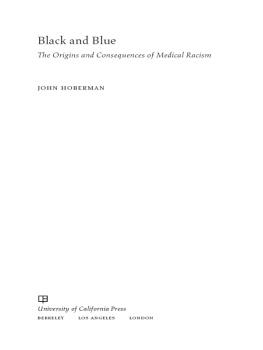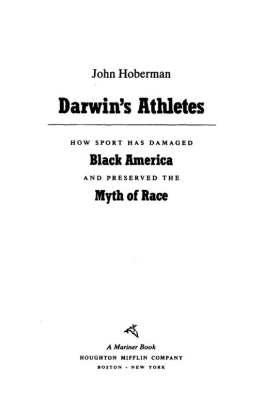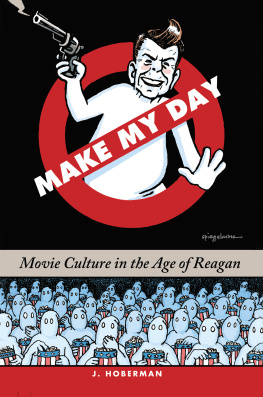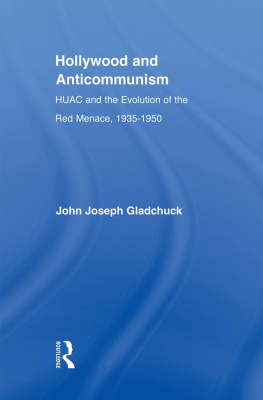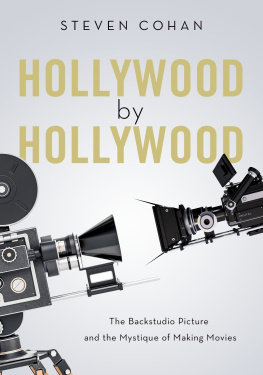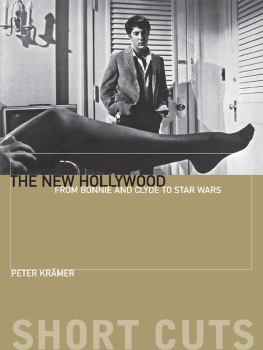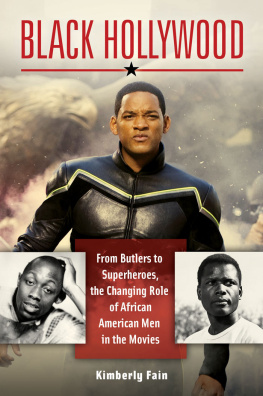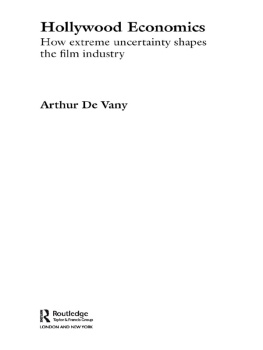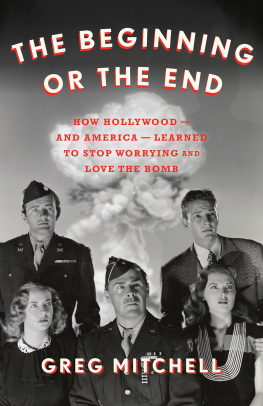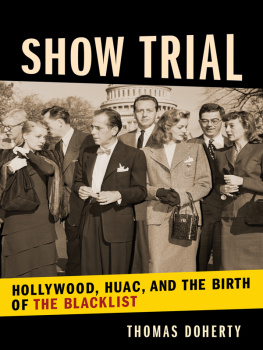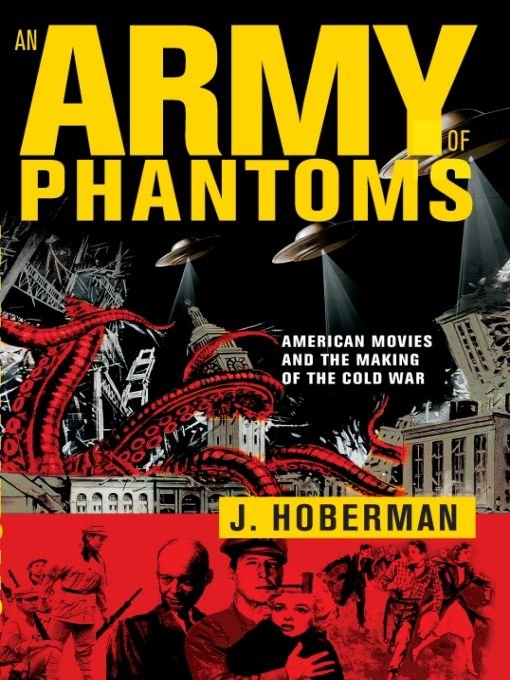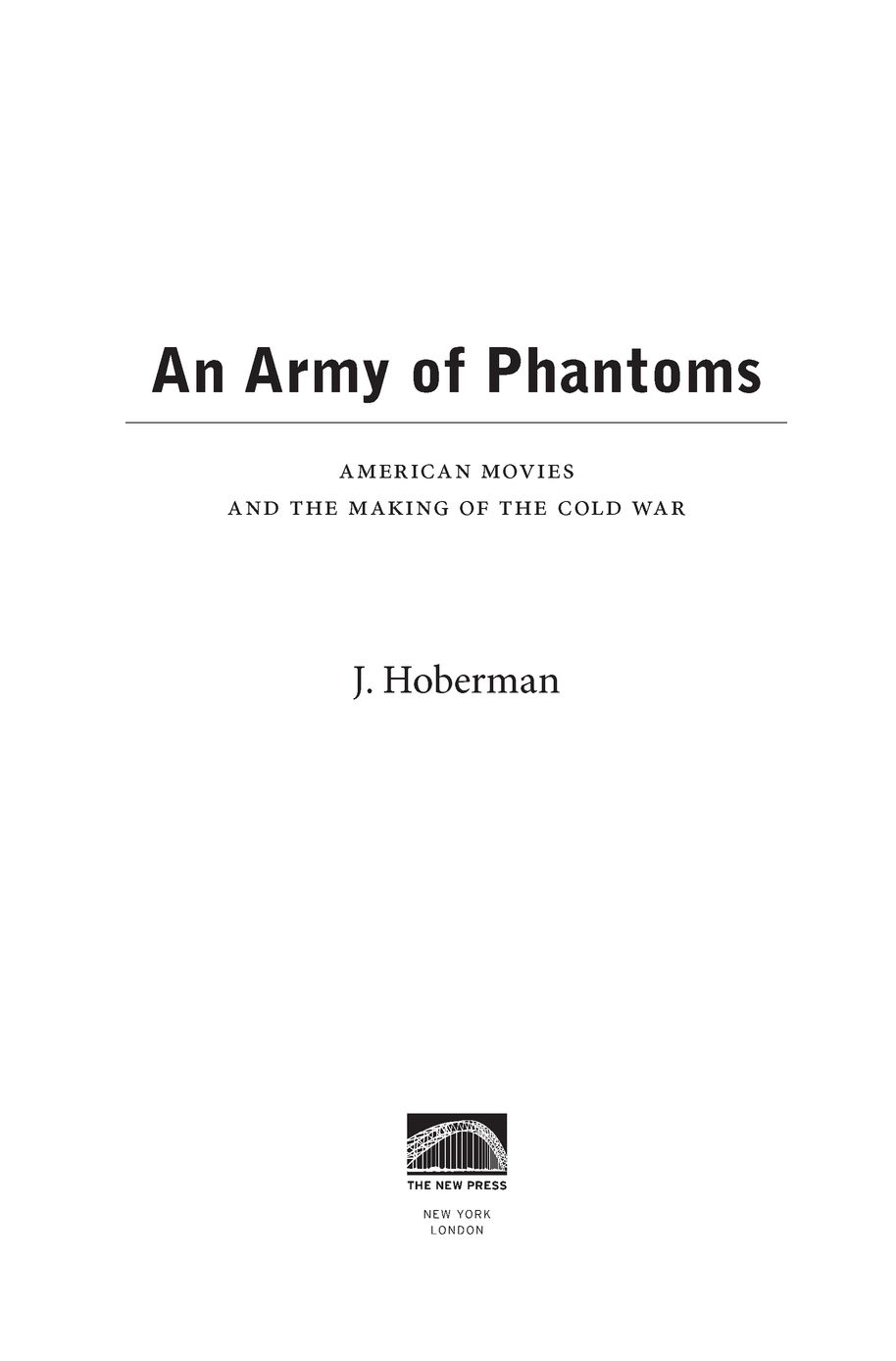Table of Contents
ALSO BY J. HOBERMAN
Bridge of Light: Yiddish Film Between Two Worlds
The Dream Life: Movies, Media, and the Mythology of the Sixties
Entertaining America: Jews, Movies, and Broadcasting
(co-edited with Jeffrey Shandler)
The Magic Hour: Film at Fin de Sicle
Midnight Movies (with Jonathan Rosenbaum)
On Jack Smiths Flaming Creatures (and Other Secret-Flix of Cinemaroc)
The Red Atlantis: Communist Culture in the Absence of Communism
Vulgar Modernism: Writing on Movies and Other Media
For Norma Jean Baker (19261962)
and Jacob Julius Garfinkle (19131952)
An army of phantoms vast and wan
Beleaguer the human soul.
HENRY WADSWORTH LONGFELLOW, The Beleaguered City (1839)
ACKNOWLEDGMENTS
An Army of Phantoms is the first installment of a projected three-volume chronicle of American movies in the light of American politics, during the period of the Cold War. Roughly covering the years between V-J Day and Dwight Eisenhowers reelection, An Army of Phantoms is the prequel to The Dream Life: Movies, Media, and the Mythology of the Sixties, published by The New Press in 2003. A final volume picking up the story on the eve of the Bicentennial and taking it just past the fall of the Berlin Wall is in preparation.
The dust had barely settled in Berlin when I began work on this project and I have many people to thank. In New York, my research was conducted at the New York Public Library: Library for the Performing Arts, the Celeste Bartos International Film Study Center at the Museum of Modern Art, the Paley Center for Media, and New York Universitys Elmer Holmes Bobst Library, particularly the Tamiment Library and Robert F. Wagner Labor Archives. In Los Angeles, I was privileged to work at the Margaret Herrick Library of the Academy of Motion Picture Arts and Sciences, the University of California Los Angeles LibraryPerforming Arts Special Collections, the University of Southern Californias Warner Bros. Archives, and the Southern California Library for Social Studies and Research. This book would not have been possible without these institutions and their dedicated staffs.
Thanks to the Freedom of Information Act, I have also had the benefit of the records kept by the Federal Bureau of Investigation. Like many researchers I owe a debt of gratitude to Daniel Leab for requesting and organizing an extensive dossier of excerpts from the FBIs massive Communist InfiltrationMotion Picture Industry (Compic) files. In addition, I requested and received FBI files on William Alland, Ben Barzman, Martin Berkeley, Cecil B. DeMille, Hanns Eisler, Carl Foreman, Samuel Fuller, Mikhail Kalatozov, Elia Kazan, Stanley Kramer, Nicholas Ray, Dore Schary, John Wayne, and the Motion Picture Alliance for the Preservation of American Ideals. Although often heavily redacted, these files were never less than interestingnot least because the FBI agents so diligently clipped and preserved articles from the Communist press.
In addition to Professor Leab, a number of historians blazed a trail that I might follow. These guides include Thomas Doherty (whose interests have anticipated many of mine), Gerald Horne, Joseph McBride (author of Searching for John Ford, the finest Hollywood biography I have ever read), Greg Mitchell, Lawrence Suid, and the exemplary cultural historian Richard Slotkin. Published thirty years ago, Larry Ceplair and Steve Englunds The Inquisition in Hollywood remains the definitive work in the field. Id also like to salute oral historians Paul Buhle and Patrick McGilligan for their truly invaluable work, as well as Michel Ciment for his unmatched book-length interviews with Elia Kazan and Joseph Losey, and beg the pardon of all those Ive forgotten.
Friends who provided crucial assistance include Steve Anker, Danny Czitrom, Eva Forgacs, Ken and Flo Jacobs, Bob Schneider, and Art Spiegelman; Im particularly appreciative of Manohla Dargis, Mel Gordon, and Dave Kehr for taking time from their own work to help me track down and retrieve specific material. Thanks also to Tom Brueggemann, who was kind enough to send me a number of key DVDs. Finally, I had the benefit of many resourceful research assistants, most of them students from NYU. While these are too numerous to thank individually, Ill cite the last three (Vadim Rizov, Violet Lucca, and Anna Bak-Kvapil) for their heroic efforts, tracking down stray Hedda Hopper columns and scanning the Daily Worker, during the books final push to completion.
Over the decades, fragments of what would be An Army of Phantoms appeared in a number of publications, including the American Prospect, Arcade, Artforum, the New York Times, the Virginia Quarterly Review, and the Village Voice; my appreciation to their editors for giving me the opportunity to follow my interests. Finally, a shout-out to Sarah Fan, who edited my manuscript at The New Press and to copy editor Aja Pollock; to Andy Hsiao, no longer at The New Press but nevertheless responsible for rescuing this project during its darkest hour; to my invariably supportive agent Jim Rutman; and to my beloved lifelong helpmeet Shelley Hoberman.
INTRODUCTION: FROM GODS MOUTH TO YOUR EAR
Probably, we will never be able to determine the psychic havoc of the concentration camps and the atom bomb upon the unconscious mind of almost everyone alive in these years.
NORMAN MAILER, The White Negro (1957)
For collective problems only collective remedies suffice...
JACQUES ELLUL, Propaganda: The Formation of Mens Attitudes (1962)
There are movies that alter ones perspective and movies designed to do that very thing. The Next Voice You Hear, an MGM film directed by William Wellman in 1950, is one such manufactured revelation. (Among other things, it inspired this book.)
The transmission reached me via television on a Christmas morning, some twenty years after its theatrical releasean unexpected discovery, comparable, in its way, to stumbling upon the Taj Mahal or the Grand Canyon. Not that The Next Voice is, as a movie, particularly grandiose. The perfection of this dowdy black-and-white production derives from its premiseso simple as to be nearly elegant and so cosmic as to appear certifiably insane. Can any movie top it? Framed by two biblical citations representing the Old and New Testaments, the movie practices a unique form of direct address. For six consecutive nights, the Creator of the Universe commandeers the airwaves to personally talk to the American people.
The implications of such divine intervention are vast, but Gods audience is essentially reduced to a single family living in a modest home in suburban Los Angeles. Joe Smith (James Whitmore) is a mechanic in the Ajax Aircraft Plant; his pregnant wife, Mary (Nancy Davis), is a gracious, super-nurturing mother to their ten-year-old son, Johnny (Gary Gray). Initially, The Next Voice You Hear appears as an unfunny situation comedy with Joe both compliant wage slave and household tyrant: Dont do like I dodo like I tell you to do, he instructs Johnny even as he chafes under authority (defined as everybody telling you what to do), resenting most particularly his acerbic foreman (Art Smith) and the neighborhood cop who regularly chastises him for heedlessly backing his heap out of the driveway.


